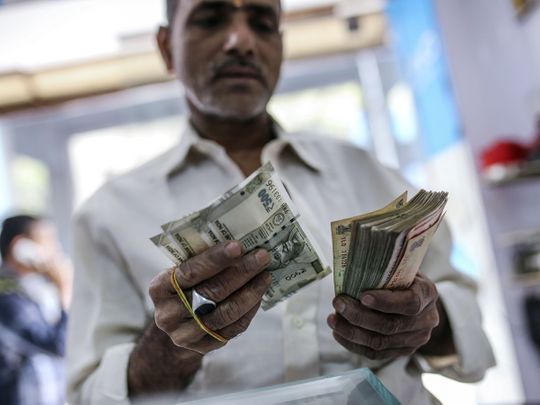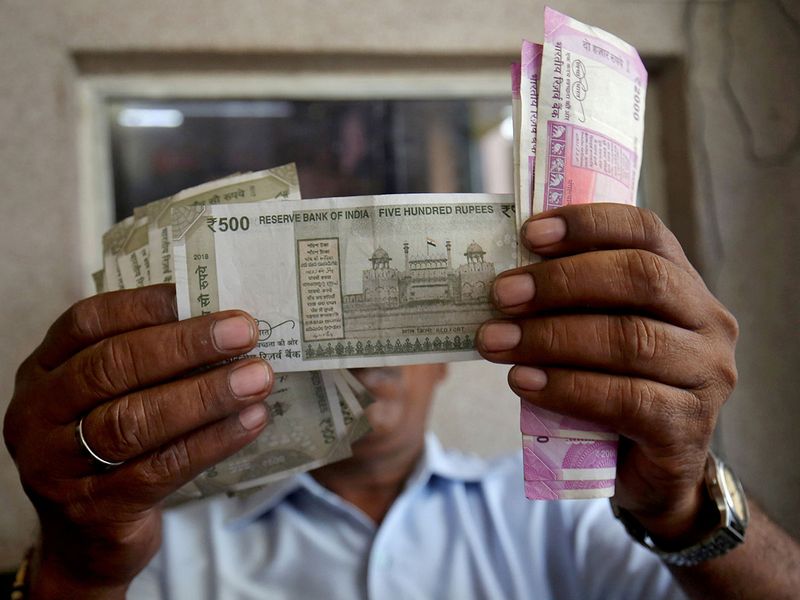
Dubai: It still proved to be an ideal time to remit for Indian expats in the UAE as the rupee fell for a second day. This is primarily because forex market sentiments continued to be hit amid a persisting Russia-Ukraine conflict.
Although the Indian rupee firmed up at Rs20.35 to a dirham at the start of Friday's session, the currency weakened to Rs20.54 by mid-day, hovering at the levels it closed at a day before. Check the latest forex rates here.
The Indian rupee became a casualty of the ongoing Russia-Ukraine hostilities as it weakened by over 1 per cent on Thursday. The rupee weakened by 1.3 per cent to Rs75.65 per US dollar from its Wednesday's close of Rs74.55.
Analysts expect the USD-INR (spot) to trade with a positive bias and quote in the range of 75.50 and 76.20. Weakness in the rupee's value against the US dollar will be automatically reflected in its exchange rate with the UAE dirham as the UAE currency is pegged to the dollar.

Oil to drive up inflation?
The rupee became the worst-performing currency in Asia as Russia-Ukraine conflict roiled sentiments and strong month-end US dollar demand from oil importers. The geopolitical uncertainties fuelled sell-off in risk assets and oil prices surged past $100 a barrel, resulting in rupee falling the most since June 2021.
At present, India is import-dependent to fulfil its crude oil needs, importing 85 per cent of its crude oil requirements. Any rise in crude oil prices will have a major impact on domestic prices of petrol and diesel. And the cascading effect of higher fuel cost will trigger a general inflationary trend.
Already, India's main inflation gauge -- the Consumer Price Index (CPI), which denotes retail inflation -- crossed the target range of the Reserve Bank of India in January. The rise was blamed on high commodity costs. As per industry calculations, a 10 per cent rise in crude oil prices adds nearly about 10 basis points in CPI inflation.
"Crude prices at such higher levels will increase the retail fuel prices by around Rs 8-10 per litre and could create inflationary pressure. Although the oil marketing companies (OMCs) have not increased retail prices since November 21 last year, the same could be seen post the Assembly elections in five states," said Bhanu Patni, senior analyst at India Ratings and Research.
On Thursday, the Brent-indexed crude oil price climbed to $105 a barrel after Russian President Vladimir Putin announced a military operation in Ukraine. This is the first time since 2014 that crude oil prices have crossed the $100 per barrel mark.
- with input from IANS




_resources1_16a30b358e0_small.jpg)

